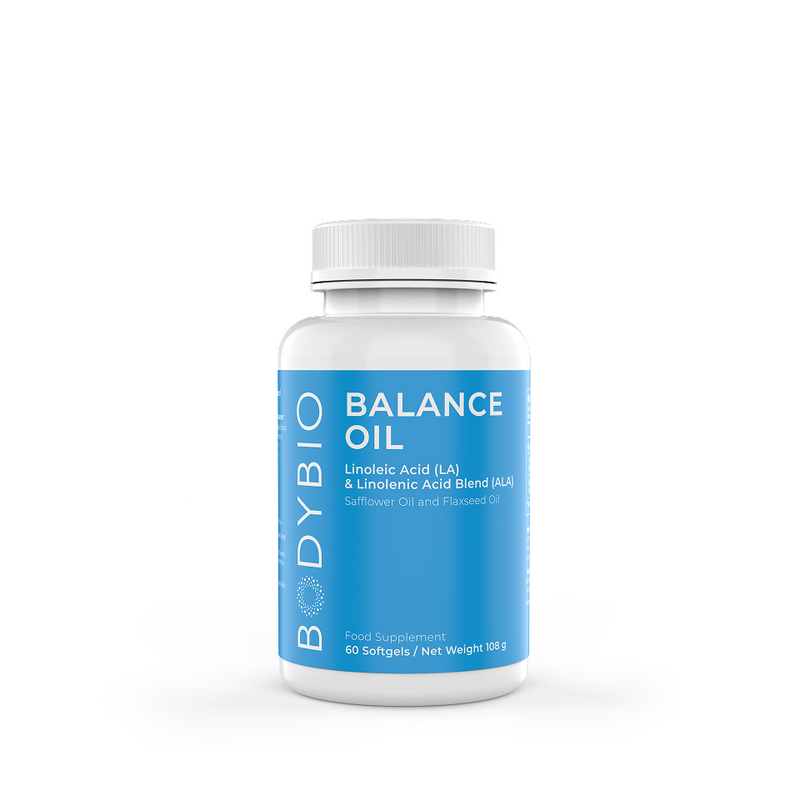Improve Mitochondrial Function & Health: Supplements, Diet, & Habits
Key Takeaways:
Key Features:
- Mitochondria, the microscopic energy producers in our cells, can make or break your health and well-being. This is why it’s so important to support them when optimizing your health.
- Diet, sleep habits, getting daily exercise, and making sure your detoxification pathways are open and flowing are all essential to healthy and functioning mitochondria.
- Supplements for mitochondrial support include CoQ10, alpha lipoic acid, N-acetyl cysteine, phospholipids, and pure omega-6 and omega-3 fats.
Are you noticing a drag on your daily energy, constantly feeling sluggish and fatigued? Whatever the external cause may be, it's your mitochondria that are ultimately responsible for your mental and physical energy at the cellular level. There are thousands of these microscopic bean-shaped organelles in each cell of your body, and whether they function well or poorly depends heavily on your diet and lifestyle.
Today, we’ll cover what mitochondria do, what can cause mitochondrial dysfunction, and how you can help your mitochondria improve their function.
Table of Contents:
- What Are Mitochondria?
- Mitochondrial Dysfunction
- How to Improve Mitochondrial Function Naturally
- Mitochondrial Support Supplements
- Support Your Health From Inside the Cell
What Are Mitochondria?
Mitochondria are the energy centers (or powerhouses) of the cell. They supply cellular energy through the production of ATP (adenosine triphosphosphate), which are essentially the batteries that store energy and power our cellular functions.
Other duties our mitochondria carry out include:
- Regulating intracellular calcium ions (Ca2+)
- Producing and scavenging reactive oxygen species (ROS)
- Regulating apoptosis, or cell death
As our main energy producers, mitochondria have a domino effect on the rest of our cellular operations. We should typically have 1,000-2,000 mitochondria per cell to produce the energy our body needs. If we don’t have enough mitochondria or they don’t function well, it kicks off a chain reaction that affects the whole cell, lowering its capacity to function. Eventually, this manifests in symptoms like fatigue, brain fog, digestive issues, and eventually, systemic illness.
One of the most fascinating facts about mitochondria is that they actually have their own genetic code, separate from cellular DNA. This “mtDNA” is passed down exclusively from mother to child, so certain genetic mutations within the mitochondria can be traced down through the maternal line. Thankfully, these mutations are relatively rare. Because of this, mitochondrial issues that result in low energy production (which is probably far more common than we realize) are usually caused by environmental factors rather than genetic ones.
Mitochondrial Dysfunction
Mitochondrial dysfunction is becoming a term used more and more commonly in functional and integrative medicine. It’s less of a diagnosis on its own than a comorbidity that comes with issues like autoimmune disease, chronic infections like Lyme disease, and mycotoxin illness, for example. It’s exactly what it sounds like – the mitochondria become dysfunctional, resulting in a massive loss of energy and therefore a loss in healing ability, immunity, brain function, and so on.
What Causes Mitochondrial Dysfunction?
There are a number of common factors that cause or amplify mitochondrial dysfunction:
- Lack of sleep
- Lack of exercise
- Toxin accumulation (heavy metals, air pollutants, glyphosate, etc.)
- Oxidative damage/free radical production
- Aging
Plus, because the body always tries to be as efficient as possible, we only produce the number of mitochondria we need to support the amount of energy we require. So, if you spend most of your days sitting behind a desk for eight hours a day, your mitochondria production will reflect that in lower numbers. Conversely, if you exercise regularly and move frequently throughout the day, mitochondria production will adjust to compensate for the additional energy required.
So you can see how, in some cases, increasing your energy is really a matter of increasing your activity. But we know that often, this is much easier said than done (especially for our friends with chronic illness), depending on your toxic burden and nutrition status.
How to Improve Mitochondrial Function Naturally
Mitochondrial support comes down to the choices you make every day for your health and well-being. What you eat, how you sleep, staying active, and detoxification are the main pillars for both increasing the amount of mitochondria and promoting better mitochondrial function.
Diet & Nutrition for Mitochondria Repair
Healthy Fats
Your diet is always one of the biggest (if not the biggest) factors in maintaining your health. For mitochondria, healthy fat intake is especially important to maintain the mitochondrial membrane, which is primarily composed of the phospholipids phosphatidylethanolamine (PE) and cardiolipin. PE has two fatty acid tails, and cardiolipin has four – requiring even more of the essential fatty acids we find in food sources like raw nuts and seeds, avocados, and fatty fish.
The most important thing for healthy fats is that they aren’t oxidized, because this makes compounds within them toxic to our bodies. This toxicity is ubiquitous in industrial seed oils like canola, cottonseed, and even sunflower oil used in processed foods and sold as cooking oil. Make no mistake, these superheated, rancid oils are inflammatory and destructive to your mitochondria.
Contrary to the toxic oils you’ll find in the supermarket, BodyBio Balance Oil provides the optimal ratio of omega-6 to omega-3 fatty acids and is cold-pressed to ensure it remains unoxidized. In this form, Balance Oil provides the essential fatty acids your mitochondria need to maintain and increase energy production.
Vitamins & Minerals
Magnesium is another important nutrient for our mitochondria to produce energy. It gets depleted rapidly by oxidative stress, which we are all chronically exposed to through pollution, vitamin deficiencies, stress, and more. We can add magnesium to our diet with dark leafy vegetables, seeds, nuts, legumes, seafood, and organic chocolate. However, additional magnesium supplementation is sometimes necessary to ensure the body gets an adequate amount.
B vitamins, carnitine, vitamin C, and selenium are also very supportive to our mitochondria. We can get these nutrients from foods like seeds, citrus fruits, fish, and meat — and always remember to choose organically grown food whenever possible.
Build Better Sleep Habits
Getting seven to nine hours of sleep per night is critical to help our brains detoxify and take out the metabolic trash from daily cellular operation. In particular, it detoxifies beta-Amyloid, the main component of Alzheimer’s plaques, which can actually be helpful to the brain in small amounts. But when we don’t get enough sleep and the body is not able to dispose of beta-Amyloid properly, it damages mitochondria in the brain. This may then lead to losses in learning and memory, and eventually dementia.
Making sure you use low and soft lighting at night, avoiding stressful activities before bed (checking email, watching stressful TV), preparing for bed with a consistent bedtime routine (brushing teeth, stretching, reading a book, etc.), and trying to go to bed at the same time each night can train your body to consistently fall asleep and get better quality sleep.
Exercises & Daily Movement
Research on mitochondria in skeletal muscle shows that exercise can produce an increase in mitochondria by more than 40 percent. The key with exercise is to recognize when it’s supportive versus when it’s acting as just another stressor on the body. Doing difficult workouts every day without rest in between is just as damaging to your mitochondria as any other toxin.
But done properly and with plenty of rest, getting active and strengthening your body can help improve mitochondria function and efficiency over time. The best exercises to increase mitochondria are typically aerobic and endurance training like cycling, swimming, rowing, and running. If that is too strenuous to start with, functional movement like walking, dancing, and yoga can provide similar benefits on a lower scale.
Detoxify Your Body
Lastly, it’s important to reduce your toxic exposure as much as possible. Clear your home of toxic cleaning products, reevaluate your makeup and skincare products, and invest in a good air purifier for your living space and bedrooms. It’s impossible to avoid all toxins, but these are good first steps to reducing your toxic load.
The other half of the equation is supporting your liver and gut health to detoxify your system of pollutants from the inside out. For more information, you can read more about how to detox naturally here.
Mitochondrial Support Supplements
When dealing with chronic issues, your mitochondria could use some extra support. This is where natural supplements come in — some recommended mitochondrial support supplements include:
- CoQ10
- L-carnitine
- Vitamin B complex
- Pyrroloquinoline quinone (PQQ)
- Alpha-lipoic acid
- N-acetyl cysteine (NAC)
- Nicotinamide adenine dinucleotide (NAD+)
- Polyphenols
- Plasmalogens
If you’re dealing with lingering symptoms of mitochondrial dysfunction post-illness, work with a knowledgeable functional medicine practitioner to find treatments that work for you.
Support Your Health From Inside the Cell
Improving mitochondrial health is essential for maintaining your energy levels as you age and encounter toxic stressors, as well as preventing both acute and chronic illnesses. When mitochondria begin to dysfunction due to lack of sleep, a sedentary lifestyle, toxin accumulation, and other factors, a vicious cycle of worsening symptoms (like fatigue, poor gut health, and low mood) gradually begins. Over time, these can become serious issues like neurodegenerative disease, but it doesn’t have to end up that way.
By changing our lifestyle and dietary habits, we can improve mitochondrial health and help prevent mitochondrial diseases.
Bhatti, J. S., Bhatti, G. K., & Reddy, P. H. (2017). Mitochondrial dysfunction and oxidative stress in metabolic disorders - A step towards mitochondria based therapeutic strategies. Biochimica et biophysica acta. Molecular basis of disease, 1863(5), 1066–1077. https://doi.org/10.1016/j.bbadis.2016.11.010
Ramezani, R. J., & Stacpoole, P. W. (2014). Sleep disorders associated with primary mitochondrial diseases. Journal of clinical sleep medicine : JCSM : official publication of the American Academy of Sleep Medicine, 10(11), 1233–1239. https://doi.org/10.5664/jcsm.4212
Hood, D. A., Memme, J. M., Oliveira, A. N., & Triolo, M. (2019). Maintenance of Skeletal Muscle Mitochondria in Health, Exercise, and Aging. Annual review of physiology, 81, 19–41. https://doi.org/10.1146/annurev-physiol-020518-114310
Jiang, J. H., Tong, J., & Gabriel, K. (2012). Hijacking mitochondria: bacterial toxins that modulate mitochondrial function. IUBMB life, 64(5), 397–401. https://doi.org/10.1002/iub.1021
Shigenaga, M. K., Hagen, T. M., & Ames, B. N. (1994). Oxidative damage and mitochondrial decay in aging. Proceedings of the National Academy of Sciences of the United States of America, 91(23), 10771–10778. https://doi.org/10.1073/pnas.91.23.10771
Ljubicic, V., Joseph, A. M., Saleem, A., Uguccioni, G., Collu-Marchese, M., Lai, R. Y., Nguyen, L. M., & Hood, D. A. (2010). Transcriptional and post-transcriptional regulation of mitochondrial biogenesis in skeletal muscle: effects of exercise and aging. Biochimica et biophysica acta, 1800(3), 223–234. https://doi.org/10.1016/j.bbagen.2009.07.031
Kramer, P., & Bressan, P. (2018). Our (Mother's) Mitochondria and Our Mind. Perspectives on psychological science : a journal of the Association for Psychological Science, 13(1), 88–100. https://doi.org/10.1177/1745691617718356
Lundby, C., & Jacobs, R. A. (2016). Adaptations of skeletal muscle mitochondria to exercise training. Experimental physiology, 101(1), 17–22. https://doi.org/10.1113/EP085319
Stefano, G. B., Ptacek, R., Ptackova, H., Martin, A., & Kream, R. M. (2021). Selective Neuronal Mitochondrial Targeting in SARS-CoV-2 Infection Affects Cognitive Processes to Induce 'Brain Fog' and Results in Behavioral Changes that Favor Viral Survival. Medical science monitor : international medical journal of experimental and clinical research, 27, e930886. https://doi.org/10.12659/MSM.930886
Stefano, G. B., Büttiker, P., Weissenberger, S., Martin, A., Ptacek, R., & Kream, R. M. (2021). Editorial: The Pathogenesis of Long-Term Neuropsychiatric COVID-19 and the Role of Microglia, Mitochondria, and Persistent Neuroinflammation: A Hypothesis. Medical science monitor : international medical journal of experimental and clinical research, 27, e933015. https://doi.org/10.12659/MSM.933015
Nunn, A. V. W., Guy, G. W., Botchway, S. W., & Bell, J. D. (2021). SARS-CoV-2 and EBV; the cost of a second mitochondrial "whammy"?. Immunity & ageing : I & A, 18(1), 40. https://doi.org/10.1186/s12979-021-00252-x
Harris, C. B., Chowanadisai, W., Mishchuk, D. O., Satre, M. A., Slupsky, C. M., & Rucker, R. B. (2013). Dietary pyrroloquinoline quinone (PQQ) alters indicators of inflammation and mitochondrial-related metabolism in human subjects. The Journal of nutritional biochemistry, 24(12), 2076–2084. https://doi.org/10.1016/j.jnutbio.2013.07.008
Wesselink, E., Koekkoek, W. A. C., Grefte, S., Witkamp, R. F., & van Zanten, A. R. H. (2019). Feeding mitochondria: Potential role of nutritional components to improve critical illness convalescence. Clinical nutrition (Edinburgh, Scotland), 38(3), 982–995. https://doi.org/10.1016/j.clnu.2018.08.032
Huertas, J. R., Casuso, R. A., Agustín, P. H., & Cogliati, S. (2019). Stay Fit, Stay Young: Mitochondria in Movement: The Role of Exercise in the New Mitochondrial Paradigm. Oxidative medicine and cellular longevity, 2019, 7058350. https://doi.org/10.1155/2019/7058350






